
"Through the gateway of feeling your pain lies your pleasure and joy." Image: Crocuses (Stephanie Romiti)

(GSR logo/Toni-Ann Ortiz)
This month, the panelists reflected on how their lives have been influenced by a mentor — someone who opened them to new opportunities or took a new direction. Was it a teacher, a friend, a superior? An offhand remark on a playground, a book or a telephone call? This is how they answered the question:
How has a sister-mentor pushed you in the right direction at some important turning point in your life?
______
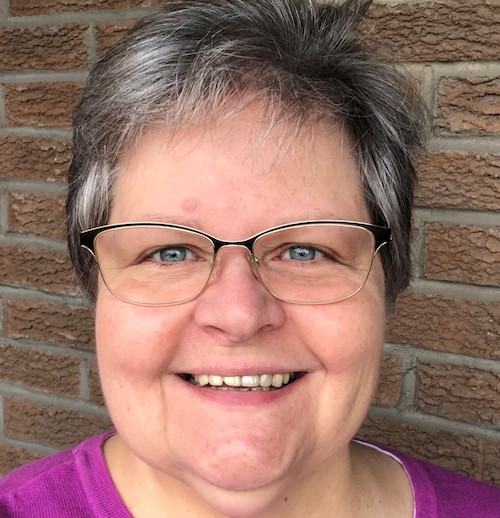 Stephanie Romiti is a Sister of St. Joseph of Sault Ste. Marie, Ontario, Canada. Her academic training was in education, and she spent more than 30 years in Catholic education in the United States and Canada as teacher, principal, religious educator and in faith formation. Since obtaining a graduate degree in Christian spirituality with certification in spiritual direction and directed retreats, she has served as retreat and spiritual director both in person and via digital platforms. Stephanie enjoys nature photography, music and creative arts, and often incorporates these in ministry.
Stephanie Romiti is a Sister of St. Joseph of Sault Ste. Marie, Ontario, Canada. Her academic training was in education, and she spent more than 30 years in Catholic education in the United States and Canada as teacher, principal, religious educator and in faith formation. Since obtaining a graduate degree in Christian spirituality with certification in spiritual direction and directed retreats, she has served as retreat and spiritual director both in person and via digital platforms. Stephanie enjoys nature photography, music and creative arts, and often incorporates these in ministry.
At a major transition in my life, the wisdom of a sister-friend led me to contemplate one of the maxims of our congregational founder, Jesuit Fr. Jean-Pierre Médaille: "Never go ahead of grace by an imprudent eagerness, but quietly await its movements and, when it comes to you, go along with it with great gentleness, humility, fidelity, and courage."
Typically, when I am in a place of vulnerability, particularly emotionally, I honestly try to acknowledge it but then just as quickly try to move on from it. My prayer during these times is often somewhat distorted: "God, as this memory, trauma — enter whatever word is fitting — comes to the surface again, I recognize that you have brought great healing to this area of my life, and I am grateful." This is an authentic prayer! The distortion comes in when I rush to move on rather than be still and listen to how God's spirit is inviting me deeper. Hmm, "never go ahead of grace by an imprudent eagerness."
Advertisement
The above-mentioned friend shared with me the following excerpt from The Second Half of Life, where Angeles Arrien quotes Eva Pierrakos (emphasis is mine):
Through the gateway of feeling your weakness lies your strength.
Through the gateway of feeling your pain lies your pleasure and joy.
Through the gateway of feeling your fear lies your security and safety.
Through the gateway of feeling your loneliness lies your capacity to have fulfillment, love, and companionship.
Through the gateway of feeling your hopelessness lies true and justified hope.
Through the gateway of accepting the lacks in your childhood lies your fulfillment now.
These words confirmed for me the value and need for me to "be with" my experiences, not to get stuck there, but to allow God to lead me forward in God's time.
What has spoken to me even louder than the words that my friend quoted to me, however, has been the example of that sister's life. She lives her life and shares these words from the depths of her own experiences of God's grace amid her own vulnerability. She is a living example to me of someone who strives to not "go ahead of grace ... but quietly await its movements and, when it comes ... [goes] along with it with great gentleness, humility, fidelity, and courage." Thank you, my friend!
I pray for the grace to live these words and be a witness of God's grace to all those I meet.
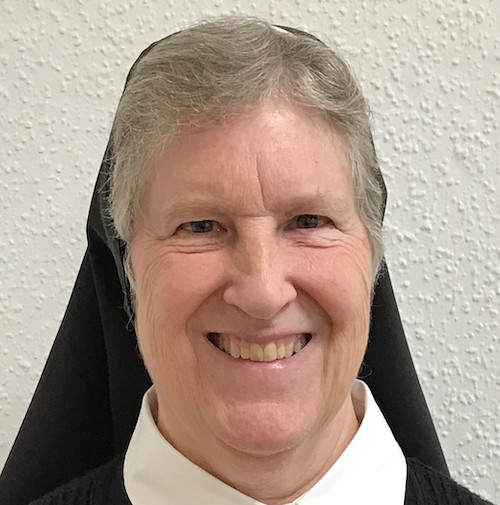 Mary Joseph Schultz of New Jersey is a member of the Sisters of Christian Charity. For many years, she taught theology in high schools before becoming president of Assumption College for Sisters in Mendham, New Jersey. During the Vatican apostolic visitation in 2010, she was chosen as one of the apostolic visitators of U.S. women religious. She went on to serve as campus minister for two colleges in New Jersey and as a member of her provincial leadership team and later worked as parish pastoral associate. She is presently serving as first councilor and vicaress at the Sisters of Christian Charity generalate in Germany.
Mary Joseph Schultz of New Jersey is a member of the Sisters of Christian Charity. For many years, she taught theology in high schools before becoming president of Assumption College for Sisters in Mendham, New Jersey. During the Vatican apostolic visitation in 2010, she was chosen as one of the apostolic visitators of U.S. women religious. She went on to serve as campus minister for two colleges in New Jersey and as a member of her provincial leadership team and later worked as parish pastoral associate. She is presently serving as first councilor and vicaress at the Sisters of Christian Charity generalate in Germany.
In my life, I have seen the hand of God working in tangible ways. But I have usually realized this only in hindsight. God's ways of leading us and interacting with us require deep trust and a definite stepping into mystery. While this can be painful and frustrating, the struggle to move forward in darkness and uncertainty is an act of love that invites us deeper into the paschal mystery. It is his way, the way that Jesus himself traveled, leading to resurrection.
My novice director has had a huge, ongoing influence as the hand of God for me, especially in the ways she has instilled confidence in me through the years. As a novice in my late teens, I lacked self-confidence. I was incredibly shy! But this sister saw something else in me. Over the years, she empowered me to take on more and more responsibilities in the province. I learned to chair assemblies, lead committees and confidently assume positions in my school ministries.
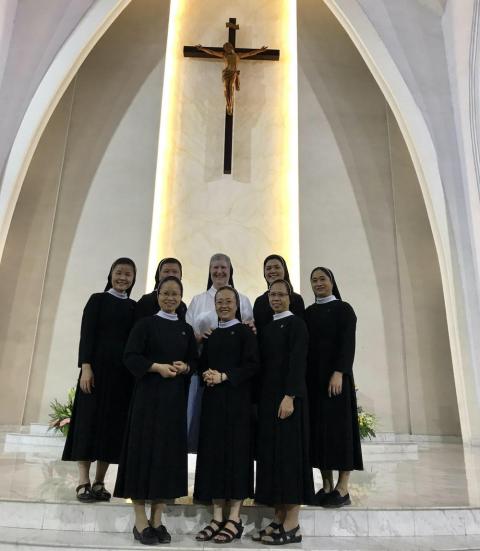
Sr. Mary Joseph Schultz reunites with Vietnamese Holy Rosary Sister graduates of Assumption College for Sisters at their motherhouse in Ho Chi Minh City, Vietnam. (Courtesy of Mary Joseph Schultz)
This all led to one fateful day 20 years ago, when I received a call from my former novice director, now the provincial superior. I was certain she had called the wrong person as she asked me to become the president of our sister formation college in New Jersey. Her statement that the college was at a crossroad and I was the "right person" did little to increase my consolation or motivation. After tears, prayers, questions and deep discernment, I became president-elect of Assumption College for Sisters.
Charged with making the transition to the education of women religious from developing nations, I became very familiar with congregations from several African countries and from Vietnam. During my seven years as president, the student population grew, and the number of alumnae who graduated and went on for bachelor's and master's degrees before returning to their native countries was (and remains) a source of pride for the college.
Fast-forward 20 years. As a new general councilor for the Sisters of Christian Charity, one of my first assignments was to travel with another sister to Vietnam to study possibilities for future ministry. One morning at prayer, I had a burst of realization that my years as college president and my continuing friendship with our Vietnamese alumnae had prepared me for this task.
This trip to Asia was a joy and a success, mainly because of my years as president of the college, a ministry I had initially resisted. However, the hand of God — the confidence instilled in me by my former novice director and provincial superior — bore fruit all these years later, as I was welcomed by our Vietnamese alumnae. Their warm hospitality and keen insights proved invaluable as I toured ministry sites, motherhouse and diocesan offices.
Once again, stepping out in faith, hand in hand with the Lord, I arose.
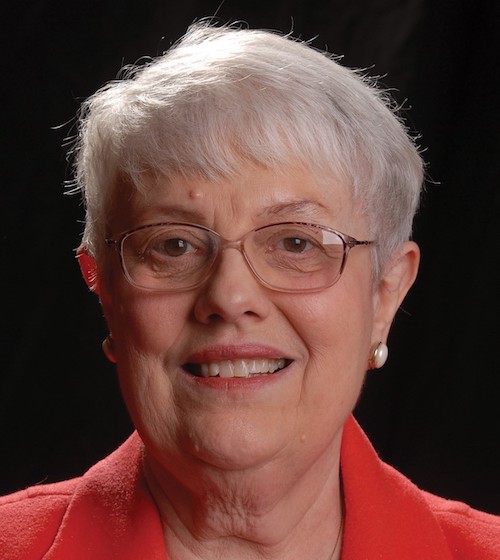 Rita M. Yeasted is a Sister for Christian Community from Pittsburgh, Pennsylvania. After beginning a business career, she entered the Sisters of Divine Providence and became an elementary school teacher. Completing graduate work in English, she began teaching high school and college English. In 1987, she transferred to the Sisters for Christian Community and just completed two terms as one of their team of international communication coordinators. Presently, she is a distinguished professor of English at La Roche University, her alma mater, and still teaches full-time.
Rita M. Yeasted is a Sister for Christian Community from Pittsburgh, Pennsylvania. After beginning a business career, she entered the Sisters of Divine Providence and became an elementary school teacher. Completing graduate work in English, she began teaching high school and college English. In 1987, she transferred to the Sisters for Christian Community and just completed two terms as one of their team of international communication coordinators. Presently, she is a distinguished professor of English at La Roche University, her alma mater, and still teaches full-time.
One of my most vivid childhood memories occurred on the school playground, when my second-grade teacher, Sister Ludmilla, asked me who would take her place when she died. She was probably 40 at most, but to a 7-year-old, the question was the first time I had thought about being a nun. I had wanted to be a teacher since I was 5, but this question sparked my first thoughts of a vocation. I would be the one to take her place.
Fast forward 13 years. The day after my 20th birthday, I became a postulant in the community that had taught me for the eight years of grade school. During my canonical year, the Second Vatican Council began, and religious life was shaken out of decades, if not centuries, of traditions. Within a few years, we went back to our baptismal names, wore modified habits and saw religious life and the church through new eyes.
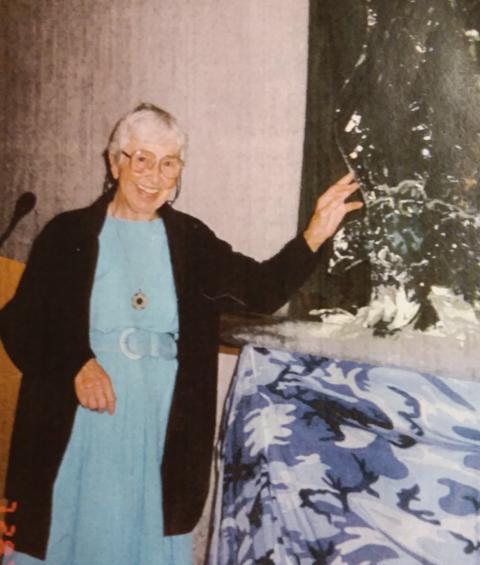
Sr. Ritamary Bradley was both friend and mentor. (Courtesy of Rita Yeasted)
Influenced by the Sister Formation Movement, we completed degrees — in my case, while I was teaching elementary school. Two more advanced degrees, and I was now teaching in a university. I had changed in those 25 years, along with the community and the church, and the question asked me at 7 was replaced with, "Is this where I belong?"
The decision about my future was both complicated and painful. While I never doubted that I had a vocation, after much prayer and counseling, it was mutually decided that I take a leave of absence. In the midst of that time of discernment, I learned of a new post-Vatican II "prophetic, ecclesial community" founded in 1970, which might fulfill my vocation to a committed life of service and a lifestyle that allowed me to discover who I was. In November 1987, I officially joined the Sisters for Christian Community.
Transferring into a new religious community is somewhat akin to remarriage. Experience tells you that much will be the same, but you are different, and you are sharing a journey with new companions. One of those companions helped me not only to make that transition, but also to understand a new theology of church and religious life. Sr. Ritamary Bradley and I shared more than a patron saint. We both had transferred from another community, both taught English in a small Catholic college, and we both shared a love for Julian of Norwich. Ritamary, one of the founders of the Sister Formation Movement, was also founder and editor of the Sister Formation Bulletin, both of which had been influential in my decision to explore a new path.
Ritamary Bradley was both friend and mentor. Her wisdom, her spirit of prayer, her laughter and sheer joy in life are what I most remember. She helped me to understand a new form of consecrated life and our community charism, "That All May Be One" in Christ. Like Julian, I strive daily for that oneness and try to be open to all that lies ahead.
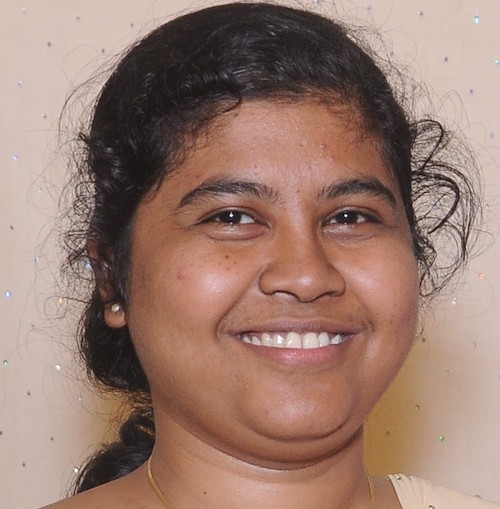 Robancy A. Helen is from Tamil Nadu, South India, and is a member of the Idente Missionaries (Religious Institute of Christ the Redeemer). With an academic background in English, social work and theology, she has written about and worked in women's issues. Recently, she served for five years as the program coordinator in the Catholic Bishops' Conference of India's Office for Scheduled Castes/Backward Classes. She is currently working on doctoral studies and training Catholic youth in leadership and social issues.
Robancy A. Helen is from Tamil Nadu, South India, and is a member of the Idente Missionaries (Religious Institute of Christ the Redeemer). With an academic background in English, social work and theology, she has written about and worked in women's issues. Recently, she served for five years as the program coordinator in the Catholic Bishops' Conference of India's Office for Scheduled Castes/Backward Classes. She is currently working on doctoral studies and training Catholic youth in leadership and social issues.
I always trust that God takes care of us, no matter how we are! He never leaves or abandons us. At this moment of the pandemic, many people ask why God is silent and does not take care of the people who suffer. But it is not true. "His silence has a reason, just we need to be patient," said my superior, with whom I lived in the same local community for 10 years.
There were many moments my superior and mentor helped me realize the importance of my religious life and my commitment. At the age of 21, I was transferred to a new city. Everything was new: new community members, new language, new weather, and a new culture. I thought I was not prepared, and adaptation was my major problem. But my superior was the only consolation in all those difficult moments.
Her approach to us sisters in formation was unique. She dealt with all of us not according to the rules and regulations, but understanding each one's psychology. She was like a mother to us, taking care of our spiritual needs. She was there for us and with our families, too. I often thought that I would be like her in taking care of the sisters in a community.
When I had a crisis, even if it was midnight, she counseled me and made sure I was OK. As a woman of deep faith in God and her calling, she strengthened me every day to be closer to God. In fact, she was the one who pushed me to help me see who I am. It is because of her I could guide others.
Within a year in that new community, I was appointed as the formator and sent twice to Germany to participate in the formators' training. I was 25 then. She not only counseled me but trained me to counsel others.
"You will be a spiritual mother of many," she often said, but I would tease her, saying that I am too young for that. During the season of winter, I suffered from the weather. As a spiritual mother, every night, she visited our rooms and made sure that we were well protected with blankets. What an angel!
She encouraged me in all my ups and downs but never abandoned me. In 2014, she was diagnosed with cancer and had to go to her home country for treatment. The whole community was devastated. The treatment lasted for a year. When she returned, she told us that the superior general would not want her to return to India but to stay there for treatment in her country, but she requested her to send her to India.
I asked her why she returned. Her reply surprised us: "I felt that you all need me here. That is why I came." She taught us how to be happy and made us happy always.
Today, we are all in different places doing missionary work, but the formation we received under her care taught us to guide and care for others as spiritual mothers. Each and every community needs a superior who can be a mother to her sisters.
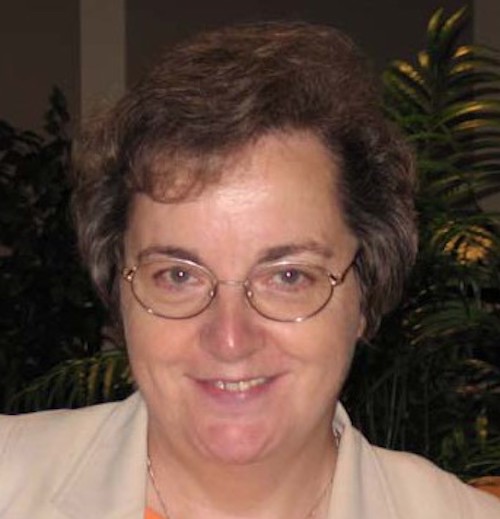 Deirdre Mullan is a Sister of Mercy from Ireland. At the height of unrest in Northern Ireland, Mullan spent 25 years as a teacher and administrator in schools. With a doctoral degree in the feminization of poverty, she has long been active in promoting the education of girls. She served as the executive director of Mercy Global Concern at the United Nations for more than 10 years, later directing the Partnership for Global Justice, a network of over 125 small congregations at the U.N. Her present ministry is with UNICEF, the United Nations Children's Fund, seeking ways to partner with religious communities.
Deirdre Mullan is a Sister of Mercy from Ireland. At the height of unrest in Northern Ireland, Mullan spent 25 years as a teacher and administrator in schools. With a doctoral degree in the feminization of poverty, she has long been active in promoting the education of girls. She served as the executive director of Mercy Global Concern at the United Nations for more than 10 years, later directing the Partnership for Global Justice, a network of over 125 small congregations at the U.N. Her present ministry is with UNICEF, the United Nations Children's Fund, seeking ways to partner with religious communities.
As an educator, I believe strongly that education is the gift that keeps on giving. I loved my work as a teacher in our 1,400-strong all-girls' Mercy college in Derry, Northern Ireland, where I was head of the Religious Education Department, and I loved the young people who, despite living in the midst of sectarian conflict, were hope-filled, generous and outgoing young women. They were — and are — a constant inspiration to me.
One evening, as I was preparing my work for the next school day, the telephone rang, and one of the other sisters in my community answered the call. She came to me and whispered, "It's for you, and I think it sounds like the provincial."
My thought was, "I wonder what she is looking for!"
Our leader at that time was Sr. Agnes Hannon, a broad thinker who had served in Zambia and Nigeria for many years. A practical woman, she looked for solutions rather than obstacles. When she first went to Zambia in the 1970s, she realized she needed agricultural knowledge, so she returned to Ireland to acquire the necessary skills for the work ahead. After many years in the field, she returned to Ireland and, soon after, was elected our leader.
It had come to her attention that a position had arisen for the executive director of the Mercy United Nations office, and Agnes thought I might be a good fit.
I thought she was out of her mind. And, as tactfully and respectfully as possible, I told her I knew nothing about the U.N. Gently but firmly, she told me, "Go anyway for the interview and see how you get on."
My life was changed forever. Suddenly, my classroom became a global one with opportunities to collaborate and engage with our sisters on the frontlines and bring what they saw and dealt with every day to the United Nations through, among other interactions, a "Bridging the Gap" program.
Years later, what continues to inspire me in this space where the heartbeat of the world is monitored is that governments the world over know that women religious were in fact the first NGOs (nongovernmental organizations) doing spade work among their people through education, health services and development programs, much like the work that Agnes Hannon and many others did in Zambia and in many countries across the globe.
That telephone call, to which I responded reluctantly at first, opened my eyes and heart to the concept of global citizenship and the realization that our destiny as a species is dependent on our awakening to the common good rather than remaining fixated on our own little corner of reality. And so, the next time that telephone rings, remember there might just be a miracle birthing for you if you have the courage to say yes.

New York's Manhattan skyline as seen from Roosevelt Island, with United Nations headquarters in the foreground (Unsplash/the blowup)







